Articles and Publications
In this section you can find all the publications of EUROPEUM staff and collaborators. Press releases can be found in the About us section.
POLL RESULTS | Influence of Czech MEPs 2025
It has been exactly one year since the current European Parliament officially took office following last year’s elections. To mark the occasion, the Institute for European Policy EUROPEUM conducted the second edition of its Influence Ranking of Czech Members of the European Parliament, based on a survey of experts, diplomats, and business representatives. The aim is to assess how Czech MEPs have fared during the first year of their new mandate.

Blog | Populism à la Carte: Online-Baked Outrage
In the increasingly hostile political environment, every ingredient matters when cooking up public discourse. Take inspiration from world-famous chefs, Donald Trump, Alice Weidel, and Marine Le Pen, and learn the art of culinary science easily. This blog post was brought to you by our work-programme interns Eva Mullholand, Jessica Jahn, and Rime Ourhim.
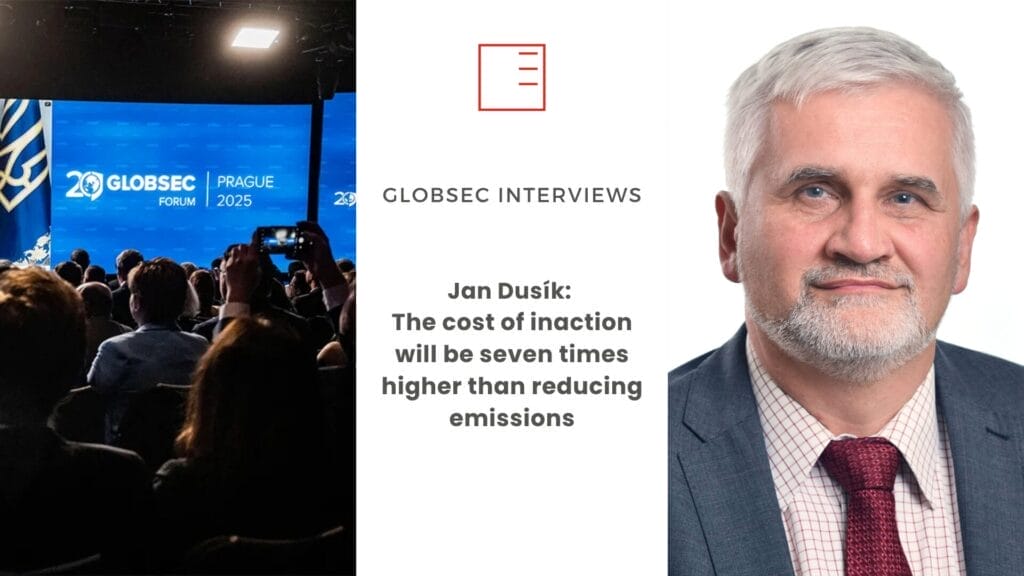
Globsec Interviews | Jan Dusík: The Cost of Inaction Will Be Seven Times Higher than Reducing Emissions
Jan Dusík is Deputy Director-General at the European Commission's Directorate-General for Climate Action (DG ENV). In his role, he focuses on linking environmental policies to public health and the protection of marine ecosystems. Previously, he served as Minister of the Environment of the Czech Republic and as Regional Director of the United Nations Environment Programme at the GLOBSEC Security Conference, where we discussed the link between climate security and Europe's green transformation.
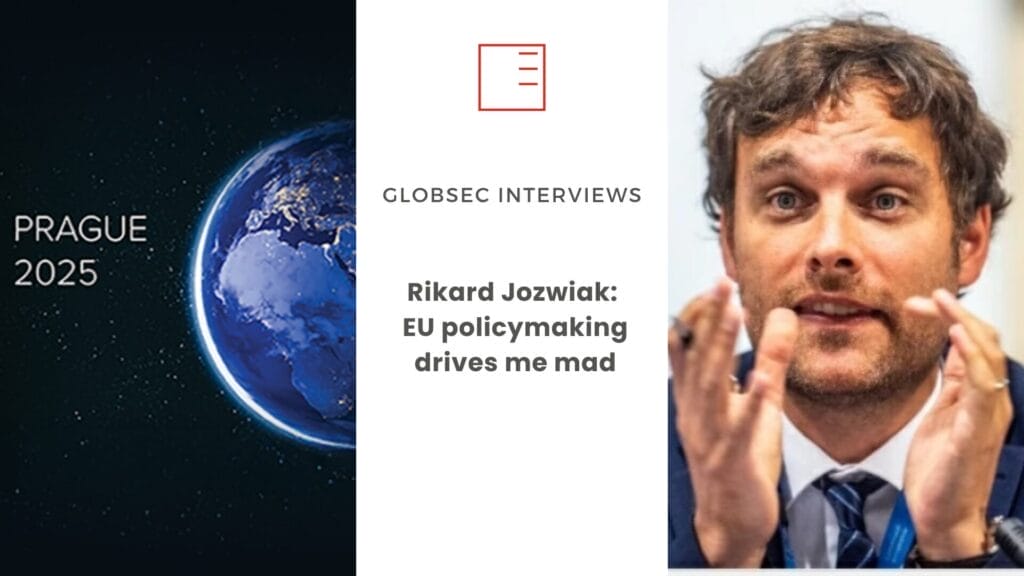
Globsec Interviews | Rikard Jozwiak: EU policymaking drives me mad
Rikard Jozwiak is an accomplished journalist and seasoned EU observer currently serving as the Europe Editor at Radio Free Europe/Radio Liberty (RFE/RL) in Prague. With two decades of experience reporting on European Union and NATO affairs, he is recognised for his sharp analysis and clear-eyed commentary on complex international developments.
Prior to taking up his current post, Rikard was RFE/RL’s Brussels correspondent, where he covered numerous EU and NATO summits, European elections, and key international court rulings. His reporting has taken him across most European capitals as well as to Central Asia, offering him a rare front-row seat to Europe’s evolving role on the global stage.
With a journalist’s instinct and geopolitical insight, Rikard remains one of the most respected voices interpreting Brussels politics for global audiences.

ANALYSIS | CITIES TAKING THE HEAT: Adaptation and heatwave preparedness in Europe
In the run-up to the summer of 2025, European cities are bracing for yet
another season of record-breaking temperatures. Heatwaves pose a serious
challenge for urban areas when it comes to infrastructure, economy,
public health and ecosystems. Heat-related hazards now account for over
85% of climate-related fatalities across Europe.
This paper explores the impacts of heatwaves upon cities and urban
populations, introducing different types of adaptation strategies used
in Europe and beyond. It also discusses useful measures of heatwave
mitigation, including urban climate shelters, shading and water
elements, and public communication.
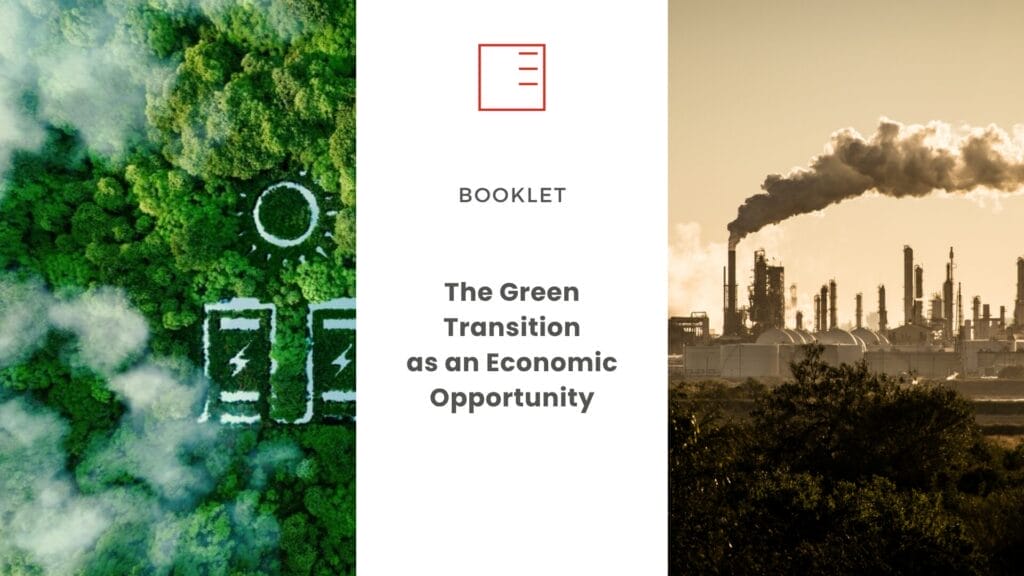
Booklet | The Green Transition as an Economic Opportunity
Climate change is no longer an abstract threat in the future, but a reality that already has tangible impacts on our lives and the economy today. The rising costs of climate change are up to six times higher than the costs of mitigating it. For the Czech Republic, investment in the green transition could yield a return of up to 3.6 times—especially in the public budget and the energy sector. Moreover, the Czech Republic has access to the largest amount of European funding in its history to support this transformation
approximately CZK 1 trillion. This presents a unique opportunity to strengthen the economy, increase its resilience, and modernize it toward greater added value.
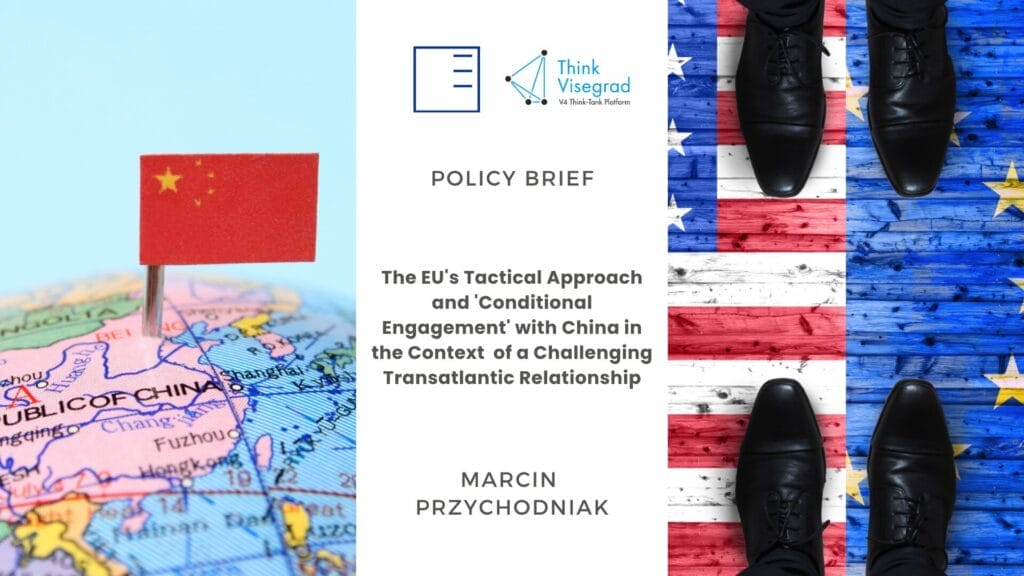
Policy Brief | The EU's Tactical Approach and 'Conditional Engagement' with China in the Context of a Challenging Transatlantic Relationship
In this Policy Brief, Marcin Przychodniak analyzes the European Union’s current approach to China in the context of shifting transatlantic relations and growing tensions between the US, the EU, and China. The paper highlights key challenges – from increasing dependency on Chinese raw materials and investment concerns to the need for stronger EU defensive tools against economic coercion. It offers recommendations on how to more effectively protect European interests and security amid rising geopolitical tensions.
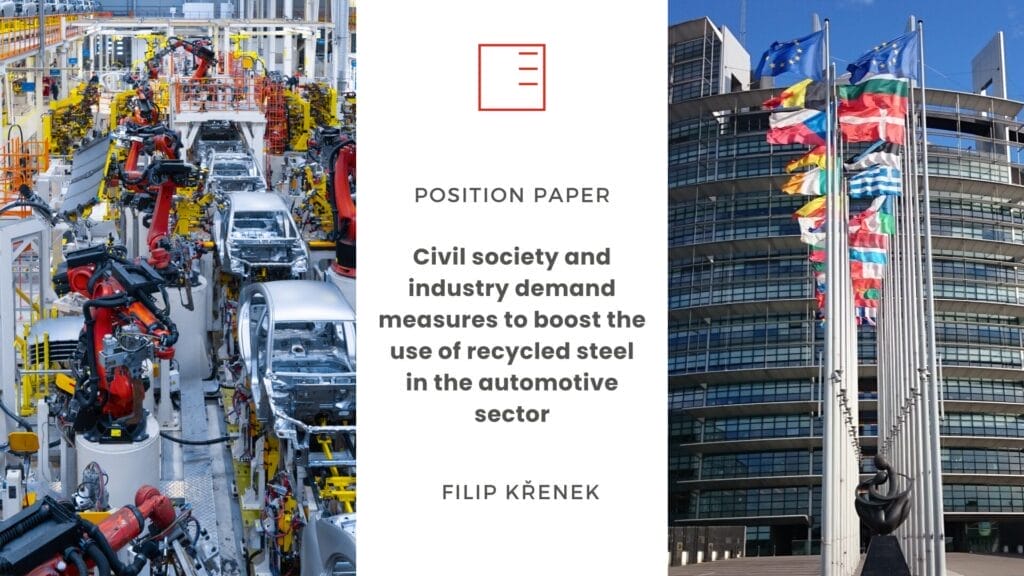
Position Paper | Civil society and industry demand measures to boost the use of recycled steel in the automotive sector
The European automotive industry is undergoing a major transformation. As EU legislation on vehicle circularity is being updated, non-profit organisations, think tanks, and representatives of the recycling sector are calling on the European Parliament and the Council to set more ambitious targets for the use of recycled steel in car manufacturing.
The signatories of the joint statement are urging stronger measures to ensure that recycled steel becomes a standard component in automotive production.

Roundtable Report | Germany in Multi-Dimensional Change: Implications for Central Europe
On April 29th, the Brussels Office of EUROPEUM, representing the Think Visegrad Platform, hosted an expert roundtable discussion entitled ‘Germany in multi-dimensional change: implications for Central Europe.’ The event took place at The Library Ambiorix, Square Ambiorix 10, under the Chatham House Rule with a participation of 14 experts. The aim of the discussion was to explore Germany’s ongoing transformation amid overlapping economic, geopolitical, and structural challenges, and their implications for broader European politics.
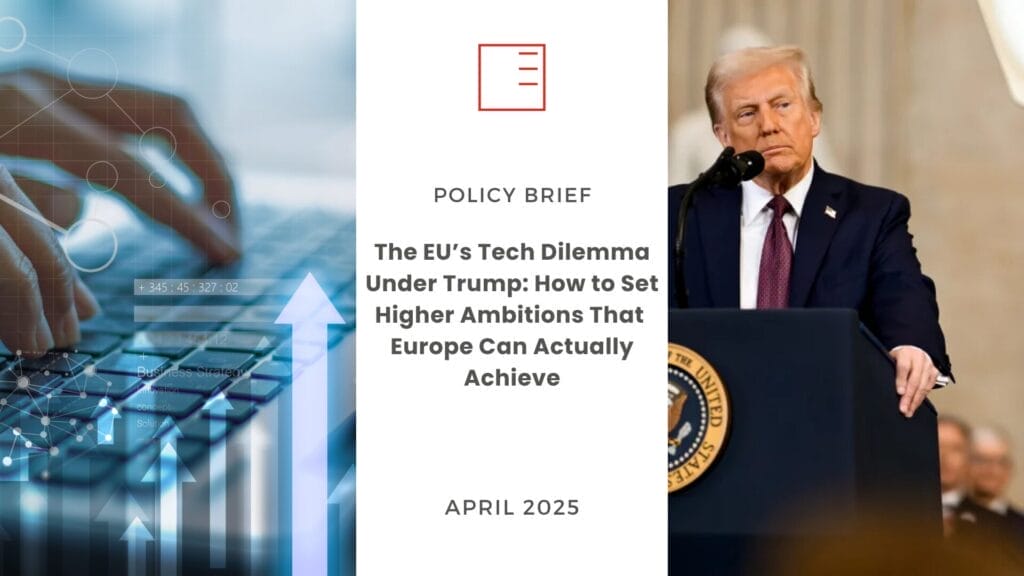
Policy Brief | The EU’s Tech Dilemma Under Trump: How to Set Higher Ambitions That Europe Can Actually Achieve - 10 Recommendations for a Targeted European Tech Strategy
In a rapidly changing geopolitical environment, the European Union faces new challenges in its tech policy, especially under a second Trump administration. The EU’s Tech Dilemma Under Trump: How to Set Higher Ambitions That Europe Can Actually Achieve outlines ten targeted recommendations to help the EU build a realistic and effective tech strategy. The policy brief stresses the urgency of reducing Europe's technological dependencies, prioritizing critical areas, fostering tech adoption to boost productivity, and ensuring open, competitive digital markets. Drawing on insights from leading European think tanks, the paper calls for an ambitious yet achievable mission-based approach to safeguard European democracy, sovereignty, and competitiveness.
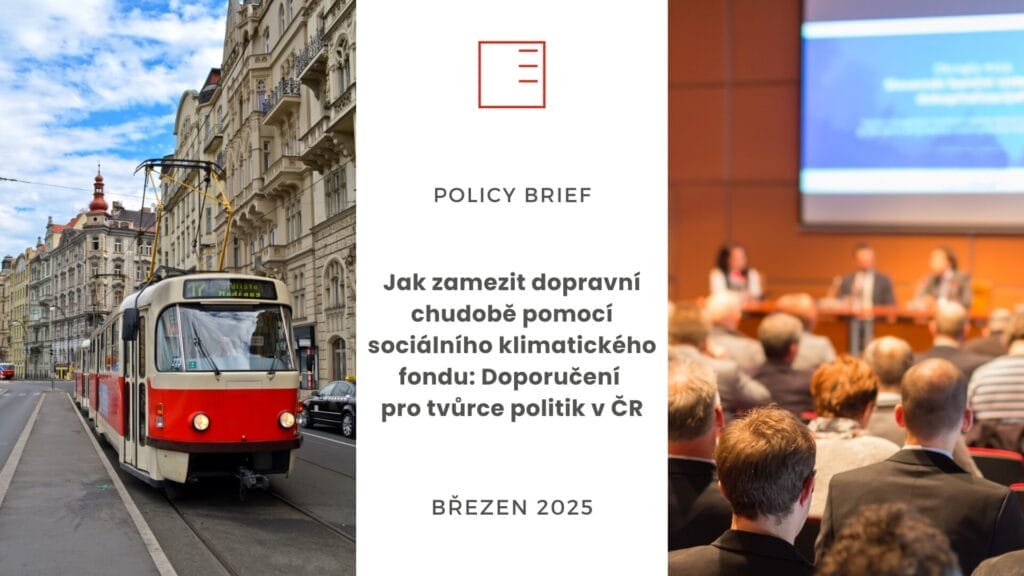
Policy Brief | How to Prevent Transport Poverty Using the Social Climate Fund: Recommendations for Policymakers in the Czech Republic
Our latest policy brief is aimed at policy makers, government representatives and experts who influence the development of climate policy in the Czech Republic. The text, written by Rebeka Hengalová, Research Fellow, and Jana Abíková, Head of the Green Europe Programme, maps the transport needs of the most vulnerable groups in the Czech Republic and provides arguments for the timely and full adoption of ETS2 and the appropriate allocation of the SCF to minimise transport poverty. The brief assesses possible solutions and discussed measures that could be funded by the national Social Climate Plan to reduce the impact of ETS2 on low-income households.

Policy paper | Tackling Transport Poverty in the Czech Republic
While transport poverty does not affect the majority of the population, available data shows that it impacts a significant and growing portion of Czech society, making it a serious issue that cannot be overlooked or expected to resolve itself over time. This policy paper by research fellow Rebeka Hengalová and head of Green Europe programme Jana Abíková details the experiences of transport-poor citizens, outlines good practice of measures from abroad and explains the potential utilisation of the Social Climate Fund in alleviating transport poverty.